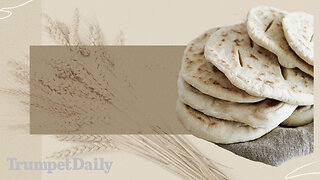Premium Only Content

How Diamond Dove Feeds
Diamond doves (Geopelia cuneata) are small, graceful birds that are commonly kept as pets due to their charming appearance and gentle nature. When it comes to caring for their chicks and feeding them, here's a general description of their behavior and feeding process:
Nesting and Egg Laying: Diamond doves usually build their nests in relatively secluded and sheltered areas. The female lays eggs in the nest, usually one at a time, with a typical clutch size of 2 eggs. The eggs are small, white, and slightly glossy.
Incubation: The female dove takes on the primary responsibility of incubating the eggs. She sits on the eggs to keep them warm and ensure proper development. The incubation period typically lasts around 13-14 days.
Hatching: Once the eggs hatch, the chicks emerge as small, pinkish, and mostly featherless creatures. They are initially blind and helpless.
Feeding Chicks: Both the male and female parents take turns feeding the chicks. The parents produce a special secretion known as "crop milk" or "pigeon milk" in their crop, which is a specialized pouch-like structure in their throat. This crop milk is rich in nutrients and is regurgitated to feed the chicks. It's not actual milk, but a nutritious substance produced by the parents.
Crop Milk Feeding Process: The parent birds bend over the chicks and regurgitate the crop milk directly into the chicks' open beaks. The chicks instinctively bob their heads up and down to stimulate the parents to regurgitate the food. This feeding process occurs multiple times a day, and the chicks grow rapidly during this phase.
Transition to Solid Food: As the chicks grow and develop, their diet gradually shifts from entirely crop milk to a mixture of crop milk and solid food. The parents start introducing small seeds and other soft, easily digestible food items into their diet. This helps the chicks adapt to a more varied diet and prepares them for independence.
Fledging: After about 12-14 days, the chicks become fully feathered and are ready to leave the nest. This stage is called "fledging." Initially, they might be a bit unsteady on their feet and not very skilled at flying, but they quickly learn and improve as they gain experience.
It's important to provide the parent birds with a balanced and nutritious diet during the breeding and chick-rearing period to ensure the health and well-being of both the parents and the chicks. Fresh water should always be available as well.
Keep in mind that while diamond doves can make great pets, breeding and raising chicks requires a good understanding of their needs and behavior. If you're planning on breeding diamond doves, it's recommended to do thorough research and consult with experienced aviculturists to ensure a successful and humane breeding process.
-
 1:32:42
1:32:42
BlackDiamondGunsandGear
7 hours agoThey Don’t want you to Purchase 2A Related Products?
48.9K3 -
 2:53:36
2:53:36
Joe Pags
10 hours agoThe Joe Pags Show 4-14-25
111K -
 56:14
56:14
Sarah Westall
10 hours agoGlobal Agenda: Starve Small Business of Funds w/ Bruce De Torres
92.2K23 -
 2:17:29
2:17:29
2 MIKES LIVE
13 hours ago2 MIKES LIVE #205 with guest Nick Adams!
67.1K -
 54:38
54:38
LFA TV
17 hours agoThe Bread of Life | TRUMPET DAILY 4.14.25 7PM
66.7K16 -
 37:52
37:52
Kimberly Guilfoyle
12 hours agoThe Trump Effect, Plus More Scandals for Leticia James, Live with Roger Stone | Ep213
84.7K28 -
 1:13:45
1:13:45
Kim Iversen
12 hours agoWe're LOSING The Tariff War With China, How Our Elites Sold Us Out | Oct 7th Rape COVERUP
109K221 -
 1:23:13
1:23:13
Redacted News
13 hours agoTrump declaring MARTIAL LAW on April 20th according to fearmonger liberals, they want civil war
175K253 -
 2:21:58
2:21:58
vivafrei
20 hours agoEp. 259: Shapiro Home FIREBOMBED! Pavlovski Goes NUCLEAR on Dorsey Over AI! Elections Canada & MORE
151K116 -
 1:06:43
1:06:43
The Amber May Show
13 hours ago $1.46 earnedFinally, The Truth Comes Out In The News About What We Have Known For A While| Sam Anthony
27.8K3